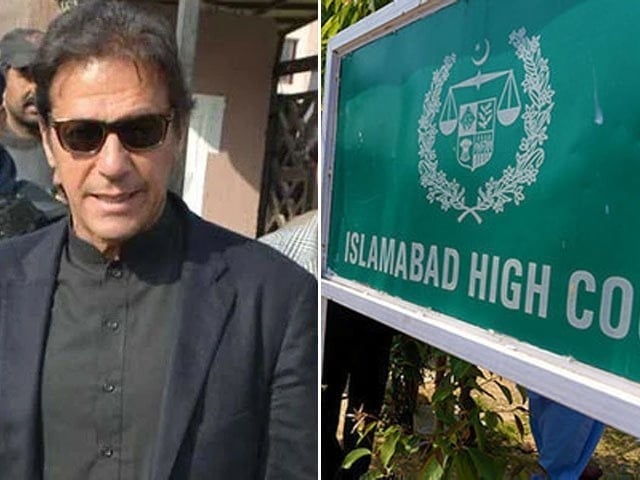In the corruption proceedings involving the £190 million and the Toshakhana NAB, the Islamabad High Court (IHC) did not reach a decision on Wednesday regarding PTI founder Imran Khan’s request to avoid a jail trial.

A two-judge panel presided over by Justice Tariq Mahmood Jahangiri and Chief Justice Aamer Farooq of the IHC considered the petition.
Proving that the media were granted access to the trial, Attorney General of Pakistan (AGP) Mansoor Awan presented screenshots from Facebook, Twitter, and YouTube, rejecting the petition of the former prime minister.
Shoaib Shaheen, the lawyer representing the PTI founder, contended that the jail trial was unrelated to any court ruling. Claiming that the malice was obvious, he stated that a notification was given even though the references had not been filed.
He has “left all his work, is sitting in jail only to conduct a trial in these cases,” the counsel referred to the court hearing the cases.
Shaheen insisted that they were not opposed to a trial in prison, but that certain guidelines needed to be adhered to.
After hearing both sides’ arguments, the IHC decided to postpone rendering a decision.
Former prime minister Imran Khan is currently awaiting trial in prison for NAB cases; the state’s senior law officer acknowledged the possibility of a typographical error in the federal government’s November 2018 notice of the trial.
While hearing Imran’s petition against his prison trial, the division bench began its proceedings, at which point the AGP made their observations.
During his remarks, Shaheen said that the prison trial protocol had been disregarded.
He brought up the International Criminal Court’s decision in the diplomatic cypher case, which ordered Imran to stand trial in prison. The IHC had previously stated that the decision to hold a trial in a regular courtroom or a prison ultimately rests with the trial court.
According to him, “the relevant trial court judge had not issued an order for Imran Khan’s prison trial,” which is why the proceedings in the cypher case were overturned by the IHC.
The accountability courts’ procedures, according to AGP Awan, are exempt from the IHC’s order, which only applies to the trial court (a special court established last year to examine cases brought under the Official Secrets Act, 1923).
According to the AGP, the 16-B provision in the National Accountability Ordinance, 1999—the law that governs NAB and its cases—is not available in the Official Secrets Act, 1923, which is why the chief justice asked him to explain how the prison trial in the current NAB cases differed from the cypher case.










































